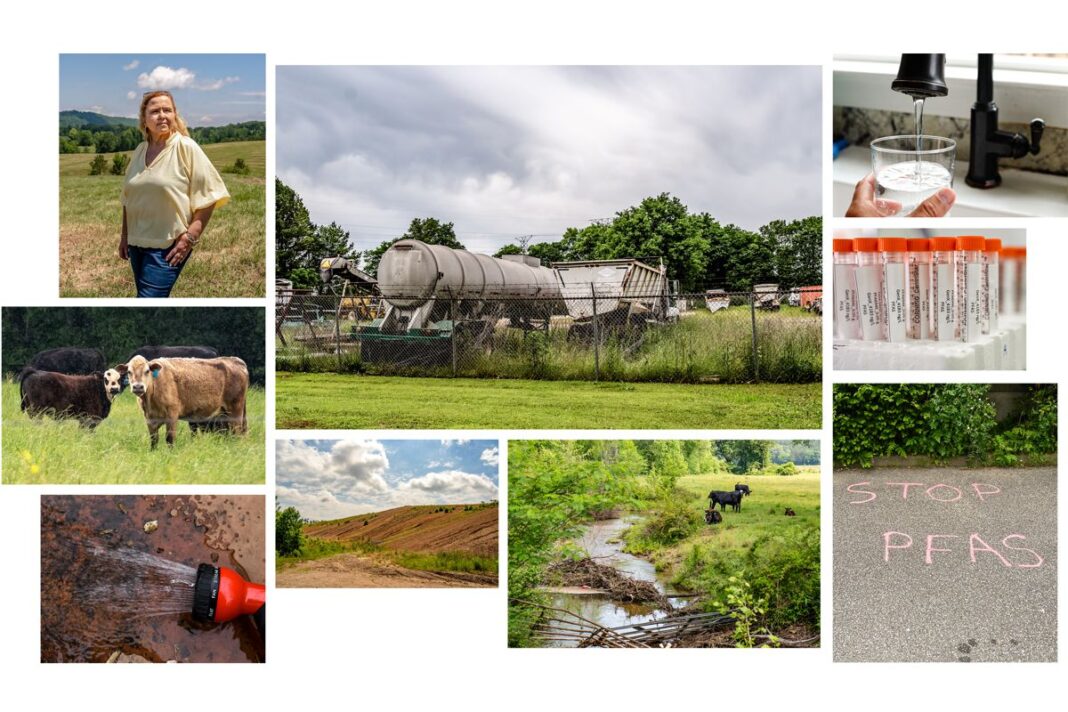Activists and landowners say a lack of consistent research and regulation is allowing dangerous chemicals to permeate the soil, endangering the public.
States are taking action to protect agriculture and waterways from harmful “forever chemicals” as they await federal regulations from the Environmental Protection Agency (EPA).
Critics say this has resulted in inconsistent and inadequate regulations exposing much of the country’s soil, air, and water to contamination by the chemicals.
According to the EPA, it is working through a very complex problem concerning a huge category of chemicals.
“The agency is committed to working closely with our partners to take a fresh look at the risks and the tools available to support our rural and agricultural communities on this issue,” the EPA told The Epoch Times in a statement.
At issue are perfluoroalkyl and polyfluoroalkyl substances (PFAS). PFAS are a group of more than 14,000 chemicals that have been used in stain- and water-repellent fabrics, nonstick cookware, food packaging, and firefighting foams since the 1940s because of their resistance to heat, oils, stains, grease, and water.
However, they do not degrade naturally and are almost impossible to destroy, earning them the “forever chemicals” appellation. According to the EPA, PFAS have been linked to cancer, reproductive issues, immune disorders, reduced vaccine response, hormonal issues, and weight gain.
In the early part of the 1970s, PFAS chemicals began to show up in soil to which biosolids had been applied.
Dredged as sludge from the bottom of wastewater treatment tanks and treated to reduce or eliminate harmful substances, biosolids have been sold or given to farmers as a low-cost fertilizer for more than 50 years.
An EPA draft assessment of two PFAS chemicals states that treated sewage sludge containing 1 part per billion of PFAS could pose a serious health risk.
An EPA statement reads, “The findings of the draft risk assessment underscore the importance of proactive federal and state policies to control and remove PFAS at their source.”
States face numerous challenges in dealing with PFAS, according to The Environmental Council of the States (ECOS), a national nonprofit association of state and territorial environmental agency leaders.
These challenges include inadequate funding, a lack of technical expertise, and dependence on EPA commitments that appear to have been put on hold.
ECOS’s mission is to help state agencies protect health and the environment, according to its website.
State biosolids regulations vary. In Maine and Connecticut they are banned, while Alabama allows almost unfettered use.








